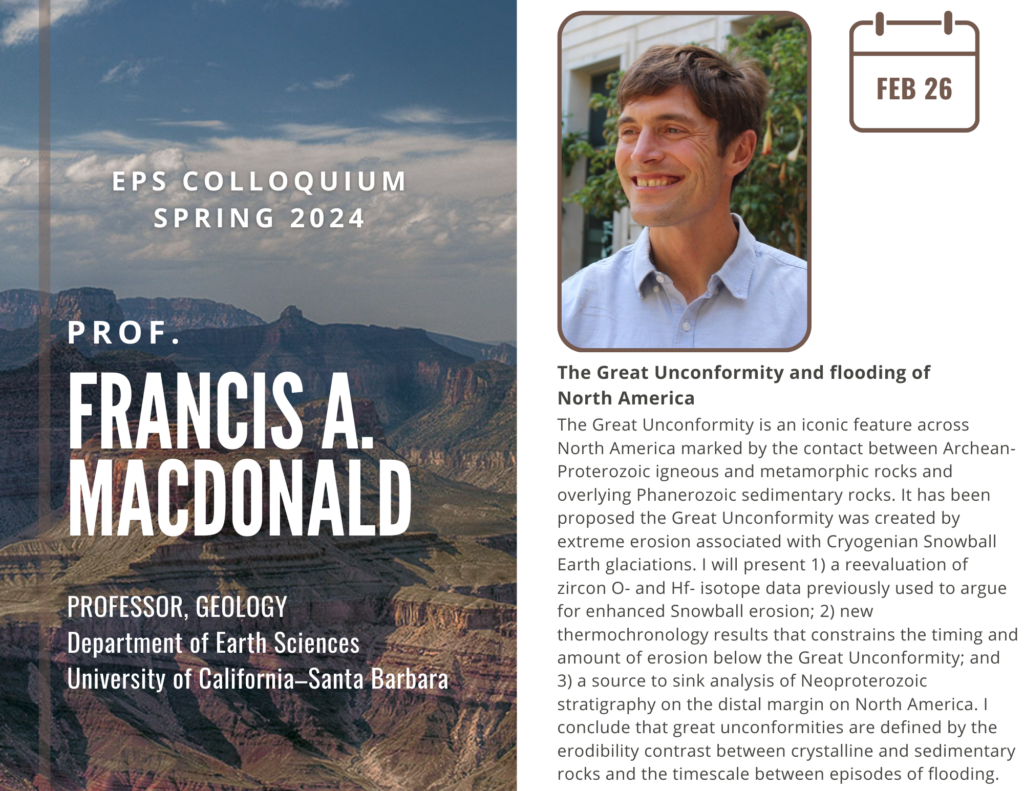EPS Colloquium: Francis Macdonald, UC Santa Barbara
The Great Unconformity and flooding of North America
The Great Unconformity is an iconic feature across North America marked by the contact between Archean-Proterozoic igneous and metamorphic rocks and overlying Phanerozoic sedimentary rocks. It has been proposed the Great Unconformity was created by extreme erosion associated with Cryogenian Snowball Earth glaciations, which not only delivered limiting nutrients to the ocean that drove the subsequent emergence of animals, but also sent large amounts of sediment to trenches that lubricated subduction zones and changed the composition of igneous rocks in volcanic arcs. To test these hypotheses I will present 1) a reevaluation of zircon O- and Hf- isotope data previously used to argue for enhanced Snowball erosion; 2) new thermochronology results from bedrock below the glacial deposits that constrains the timing and amount of erosion below the Great Unconformity; and 3) a source to sink analysis of Neoproterozoic stratigraphy on the distal margin on North America. Together I conclude that Snowball Earth was not a significant agent of erosion. Instead, great unconformities are defined by the erodibility contrast between crystalline and sedimentary rocks and the timescale between episodes of continental flooding. Ongoing work is focused on reassessing the relationships between Snowball Earth and the rise of animals.
To be added to the EPS colloquium mailing list, please contact Caroline Carr at carolinecarr@fas.harvard.edu.

Francis Macdonald’s research focuses on the interactions of tectonics, climate, and biological evolution through Earth history. This work begins with geological mapping, and uses stratigraphic analysis, isotope geochemistry, geochronology, paleomagnetism, and paleontology to reconstruct paleoenvironments and tectonic histories. Recent projects have focused on Snowball Earth, the Great Unconformity, the impact of tropical mountains on global climate, and the tectonic evolution of the Americas, Africa, and Asia. Macdonald was awarded the GSA Young Scientist Award (Donath Medal) in 2014 and the AGU Early Career Award (Macelwane Medal) in 2019. He holds a B.S. from Caltech and a Ph.D. from Harvard University.

